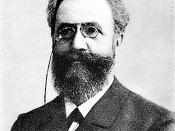"The first step in improving your academic performance is to make sure what you're studying is processed effectively so it can be stored in long-term memory."(p.259) Some information is obtained automatically, but the learning process requires a little effort. To encode, you must pay attention, take good notes, use Mnemonic strategies, and retrieve the information.
The first part of encoding is for you to pay attention. You need to make sure that you're not easily distracted by the things that are going on around you. If you want to remember something, you must pay attention to it and nothing else. "If you find yourself getting distracted, use a cue word or phrase to increase your attention." (p.259) If you understand the information, rather than just rehearsing it, you will be more likely to remember it over a long time period. Rehearsal works for short term memory, but for long term, it is not as efficient.
The next thing to do is take good notes. "Taking good notes while listening to a lecture or reading a textbook also benefits memory."(p.260) Good note-taking involves summarizing and outlining information. Instead of trying to write down everything the instructor says, you need to just listen for a few minutes, and then write down all of the main points of what he/she has just discussed. Then listen again and do the same thing over and over until the lecture is over. Another good idea of note taking is to outline. While outlining, "Use hierarchy to show which ideas are related and how general or specific they are." (p.260)
The next helpful way to study is to use Mnemonic strategies. "Mnemonics are specific visual or verbal memory aids."(p.260) The method of loci is a way to develop images of items to be...


